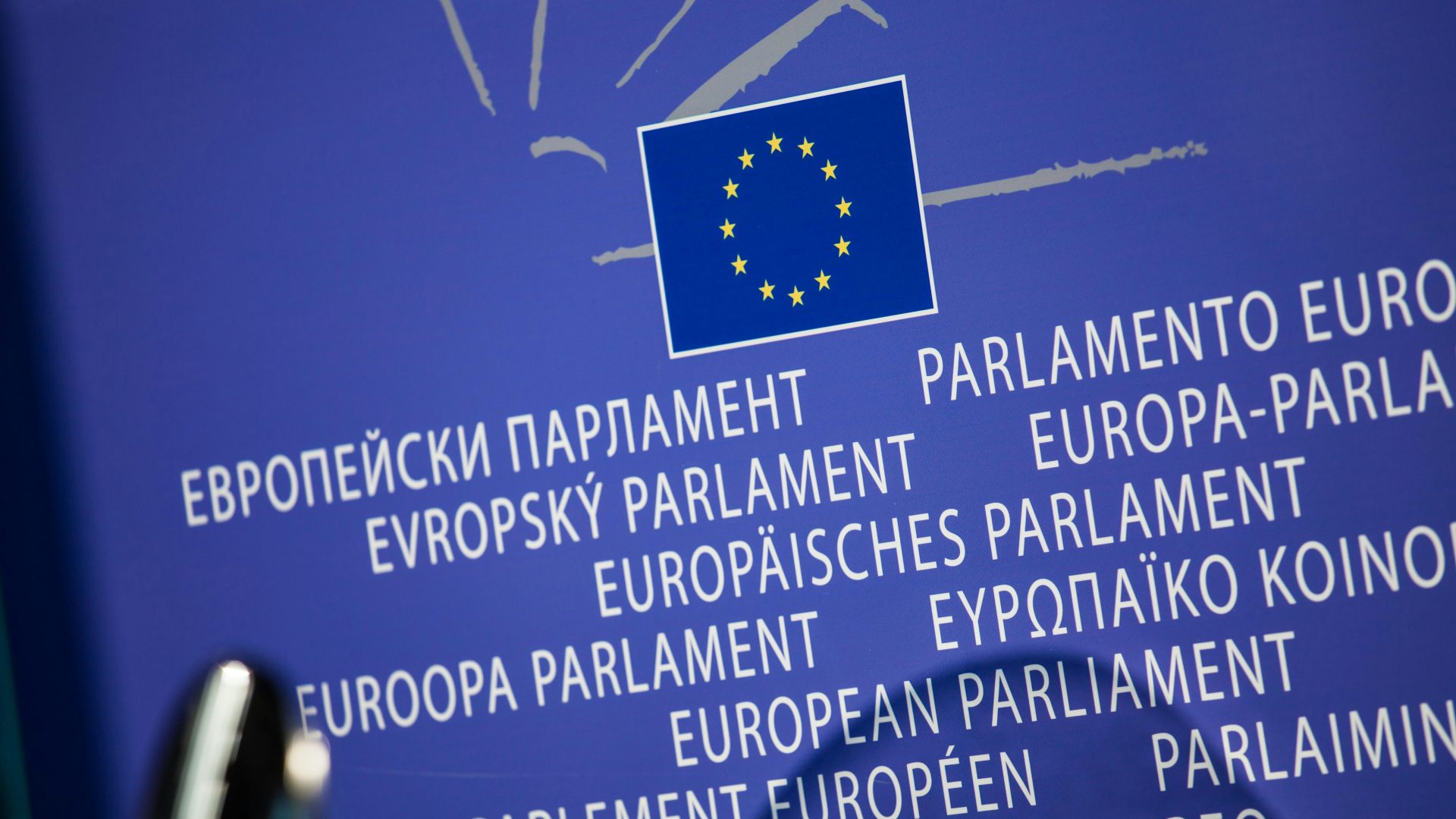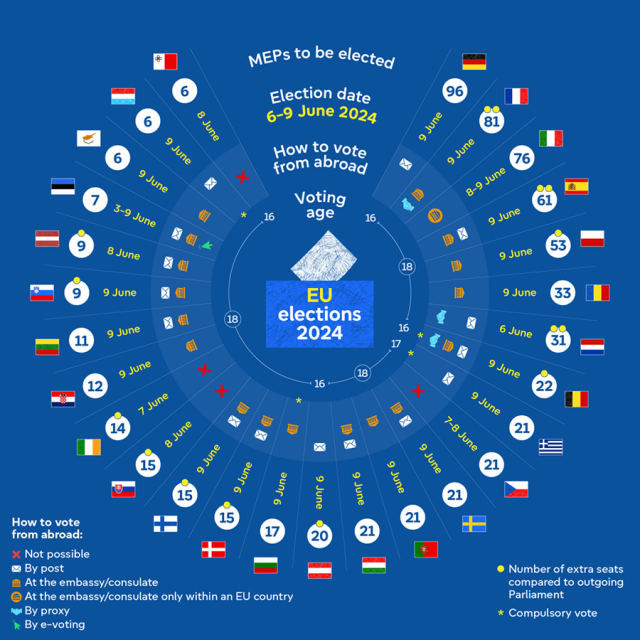
European elections
As the European elections approach, expat voting remains a crucial aspect of the democratic process due to the sheer number of EU citizens living abroad: in 2022, 3.3 % of EU citizens resided in a Member State other than that of their citizenship.
With millions of EU citizens living outside their home country, understanding how they can exercise their right to vote is essential for ensuring their voices are heard. However, navigating the various electoral systems and deadlines is no easy task as the voting provisions for citizens living abroad differ significantly across the 27 EU countries.
This practical guide provides an overview of the procedures and requirements for expats who wish to participate in the upcoming EU elections and the steps they need to take to cast their vote from abroad.
Here are the key points:
Voting in your Country of Residence:
-
- As an EU expat residing in an EU member state other than that of your citizenship, you are, of course, entitled to register to vote in your current country of residence.
- Keep in mind that this means that you will be voting for this country’s prospective MEPs – and not those of your home country.
Voting Rights Abroad:
-
- Recognition: 23 Member States allow their citizens to vote from abroad in European elections, with some differences in process and eligibility.
- Restrictions:
- Bulgaria and Italy permit voting from abroad only for citizens residing in another EU Member State, not in third countries.
- Czechia, Ireland, Malta, and Slovakia do not allow their citizens to vote from abroad. Irish citizens in specific categories like military and diplomatic staff, however, can vote from abroad.
Voting Methods:
-
- In-Person Voting at Diplomatic/Consular Missions: 18 Member States offer this option. Hungary restricts this right to citizens with a domicile in Hungary, while those without it must vote by post.
- Polling Stations Outside Missions: Belgium, Cyprus, Poland, France, Romania and Spain may set up additional polling stations under certain conditions.
- Postal Voting: Allowed in 14 Member States. Some countries cover postal costs (Austria, Hungary) or reimburse them (Spain), while others require voters to pay (Estonia, Germany, Netherlands).
- Proxy Voting: Permitted in Belgium, France, and the Netherlands, which also support in-person and/or postal voting.
- Electronic Voting: Estonia is the only Member State that allows internet voting.
Compulsory Voting:
-
- Belgium, Bulgaria, Greece and Luxembourg have compulsory voting for EU elections.
These measures show how EU countries try to make it easier for their citizens abroad to vote, ensuring they can participate in the democratic process despite being away from home.
For answers to all your questions on where to vote, how to vote and why to vote, check out the following official European Parliament webpage at #UseYourVote: https://elections.europa.eu/en/

Do you know how you’re voting? Want to know who the movers and shakers are this year, and what key issues are at stake? logos can help you navigate the complex European political landscape, whatever your nationality or interest. Get in touch, or follow us on LinkedIn for sharp insights on the biggest issues facing Europe now and in the coming years.